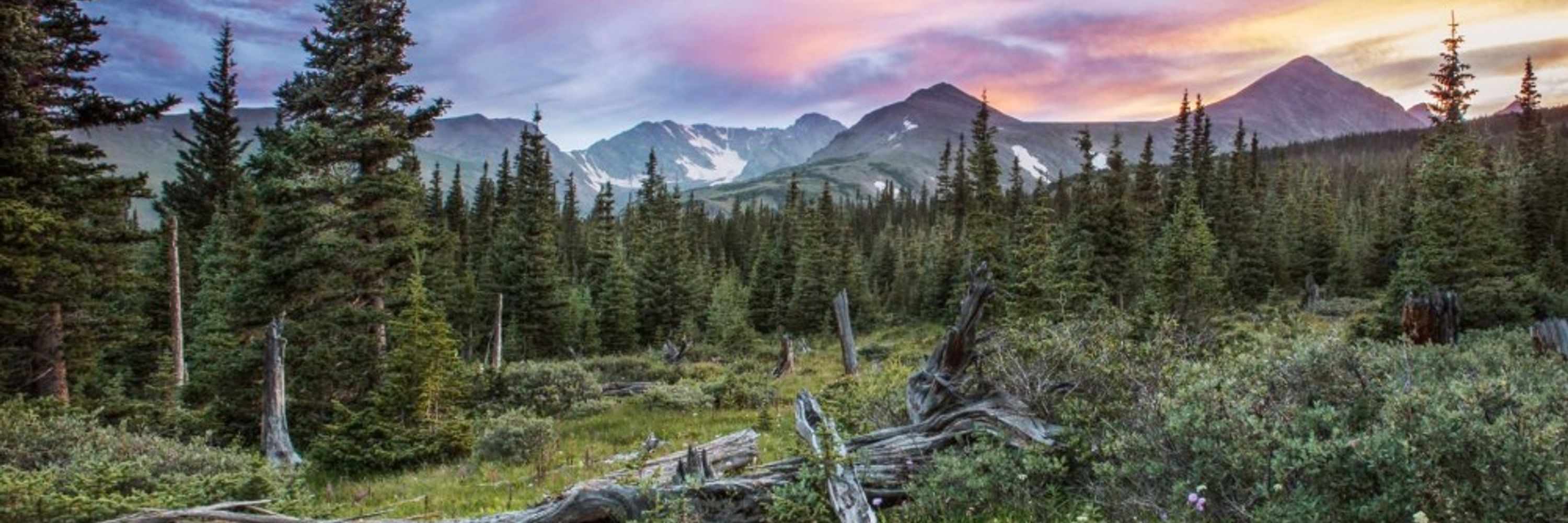
🧊 Cold regions
⌛ Past climate
🏔️ Earth surface processes
💨 Atmospheric gases
🌱 Ecological change
& lots more!
Read about their efforts in this CU Boulder Today story: www.colorado.edu/today/2026/0...

Read about their efforts in this CU Boulder Today story: www.colorado.edu/today/2026/0...

📓 Natural history
🦅 Birds
🌱 Flora
🦌 Animals
🚣♀️ Lakes+streams
🌲 Forests+fire
Each ecology focused, ~2 wks, 3 transferable credits, 15 students, lodging&food included w tuition
www.colorado.edu/mrs/2026/01/...


📓 Natural history
🦅 Birds
🌱 Flora
🦌 Animals
🚣♀️ Lakes+streams
🌲 Forests+fire
Each ecology focused, ~2 wks, 3 transferable credits, 15 students, lodging&food included w tuition
www.colorado.edu/mrs/2026/01/...

What a great way to start celebrating INSTAAR's 75th anniversary in 2026! See more #INSTAAR75 events at www.colorado.edu/instaar/abou...




What a great way to start celebrating INSTAAR's 75th anniversary in 2026! See more #INSTAAR75 events at www.colorado.edu/instaar/abou...
🗺️ Daily maps
📉 Daily time series plots
📰 Occasional data analysis articles like this one 👇🏽
Read more in @nsidc.bsky.social's Snow Today: nsidc.org/snow-today/m...

🗺️ Daily maps
📉 Daily time series plots
📰 Occasional data analysis articles like this one 👇🏽
www.colorado.edu/instaar/2026...

www.colorado.edu/instaar/2026...
Western US
www.colorado.edu/instaar/rese...
Sierra Nevada
www.colorado.edu/instaar/rese...

Western US
www.colorado.edu/instaar/rese...
Sierra Nevada
www.colorado.edu/instaar/rese...
🏔️ Life at the bottom of the world: A research journey to the Antarctic Dry Valleys
Diane McKnight
Thur Feb 5th 5-7pm MT
CU Boulder East Campus & Zoom
FREE event but must register at calendar.colorado.edu/event/diane-...

🏔️ Life at the bottom of the world: A research journey to the Antarctic Dry Valleys
Diane McKnight
Thur Feb 5th 5-7pm MT
CU Boulder East Campus & Zoom
FREE event but must register at calendar.colorado.edu/event/diane-...
Lina Pérez-Angel (now at Brown U) & Julio Sepúlveda led the team.

Lina Pérez-Angel (now at Brown U) & Julio Sepúlveda led the team.
Their new paper describes how icebergs export nutrients from Greenland into the Atlantic Ocean, a process that is being amplified by a warming climate.

Their new paper describes how icebergs export nutrients from Greenland into the Atlantic Ocean, a process that is being amplified by a warming climate.
Diane McKnight
Thur Feb 5th 5-7pm MT
CU Boulder East Campus (JSCBB A115) & Zoom
#INSTAAR75 75th anniv. seminar + grad student poster showcase
FREE event but must register at calendar.colorado.edu/event/diane-...

Diane McKnight
Thur Feb 5th 5-7pm MT
CU Boulder East Campus (JSCBB A115) & Zoom
#INSTAAR75 75th anniv. seminar + grad student poster showcase
FREE event but must register at calendar.colorado.edu/event/diane-...
Mountain Research Station @colorado.edu
🦅 Feb 14 Winter birding
❄️ Mar 14 SNOTEL tour
🐇 Apr 04 Mammals
Open to the public. ~45 minutes from Boulder. Each program runs from 10am to noonish and only has space for 20.
Reserve your spot now www.colorado.edu/mrs/




Mountain Research Station @colorado.edu
🦅 Feb 14 Winter birding
❄️ Mar 14 SNOTEL tour
🐇 Apr 04 Mammals
Open to the public. ~45 minutes from Boulder. Each program runs from 10am to noonish and only has space for 20.
Reserve your spot now www.colorado.edu/mrs/
Insights courtesy of Karl Rittger's Snow Today website, which processes and visualizes data from the MODIS tool on NASA's Terra satellite.
🛰️ ❄️ 🛰️

Insights courtesy of Karl Rittger's Snow Today website, which processes and visualizes data from the MODIS tool on NASA's Terra satellite.
🛰️ ❄️ 🛰️
Diane McKnight
Thur Feb 5th 5-7pm MT
CU Boulder East Campus (JSCBB A115) & Zoom
#INSTAAR75 75th anniv. seminar + grad student poster showcase
FREE event but must register at calendar.colorado.edu/event/diane-...

Diane McKnight
Thur Feb 5th 5-7pm MT
CU Boulder East Campus (JSCBB A115) & Zoom
#INSTAAR75 75th anniv. seminar + grad student poster showcase
FREE event but must register at calendar.colorado.edu/event/diane-...
53rd Int'l Arctic Workshop + NE Glaciology Mtg
March 18-21, 2026 at the Univ. at Buffalo
Abstracts due February 20
The conferences will run in parallel, with sessions in adjoining halls and shared meals. More info: arts-sciences.buffalo.edu/geological-a...


53rd Int'l Arctic Workshop + NE Glaciology Mtg
March 18-21, 2026 at the Univ. at Buffalo
Abstracts due February 20
The conferences will run in parallel, with sessions in adjoining halls and shared meals. More info: arts-sciences.buffalo.edu/geological-a...
science.nasa.gov/earth/earth-...

science.nasa.gov/earth/earth-...

• CU Boulder E Campus (SEEC S228) & online
• Apr 2-3, 2026
• Abstracts due Mar 16
Abstracts encouraged from @colorado.edu grad & undergrad students, researchers, faculty, & others.
www.colorado.edu/program/hydr...

• CU Boulder E Campus (SEEC S228) & online
• Apr 2-3, 2026
• Abstracts due Mar 16
Abstracts encouraged from @colorado.edu grad & undergrad students, researchers, faculty, & others.
www.colorado.edu/program/hydr...
https://bit.ly/3Ny3ifk

https://bit.ly/3Ny3ifk
These four researchers spend their summer months collecting data in the subalpine and alpine around the Mountain Research Station. Their work spans plants, mammals, insects and lake chemistry.

These four researchers spend their summer months collecting data in the subalpine and alpine around the Mountain Research Station. Their work spans plants, mammals, insects and lake chemistry.
Tom Marchitto is a collaborator on a new paper led by the Woods Hole Oceanographic Institution.
www.whoi.edu/press-room/n...

Tom Marchitto is a collaborator on a new paper led by the Woods Hole Oceanographic Institution.
www.whoi.edu/press-room/n...
🏔️ Life at the bottom of the world: A research journey to the Antarctic Dry Valleys
Diane McKnight
Thur Feb 5th 5-7pm MT
CU Boulder East Campus (JSCBB A115) & Zoom
FREE event but registration required calendar.colorado.edu/event/diane-...

🏔️ Life at the bottom of the world: A research journey to the Antarctic Dry Valleys
Diane McKnight
Thur Feb 5th 5-7pm MT
CU Boulder East Campus (JSCBB A115) & Zoom
FREE event but registration required calendar.colorado.edu/event/diane-...

Diane McKnight
Thurs Feb 5th 5-7pm MST
CU Boulder East Campus (AERO 114) & Zoom
All are welcome to this FREE INSTAAR 75th anniversary seminar but please register in advance calendar.colorado.edu/event/diane-...

Diane McKnight
Thurs Feb 5th 5-7pm MST
CU Boulder East Campus (AERO 114) & Zoom
All are welcome to this FREE INSTAAR 75th anniversary seminar but please register in advance calendar.colorado.edu/event/diane-...

